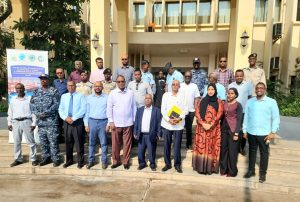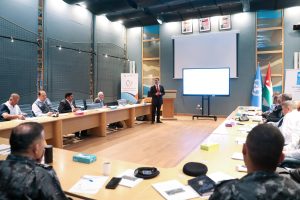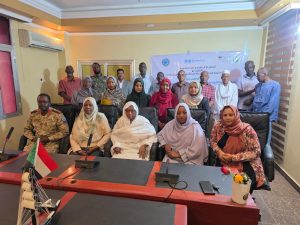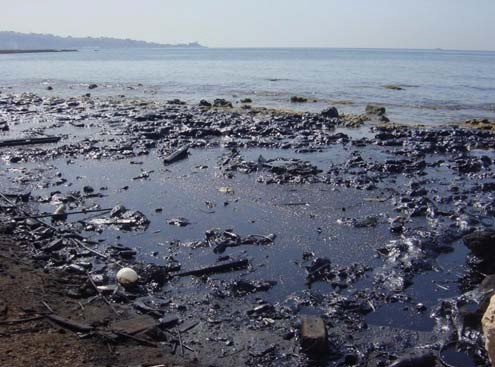From 24 to 26 November 2020, PERSGA organized a regional training workshop on “preparedness and response to oil spills with a special focus on the international legal framework”. The workshop was organized remotely allowing thirty-seven experts from all over the region to gain experience on the legal instruments governing oil spill incidents, and the risk of major oil spills, including transboundary spills and their potential impact on the environment of PERSGA member countries.
This regional training workshop comes within the framework of PERSGA efforts to build the capacities of its member countries in areas related to oil pollution incidents and their adverse impacts on both the marine environment and human health.
The workshop started with an opening speech from Prof. Ziad Abu Ghararah- PERSGA Secretary General highlighting the importance of strengthening cooperation in the preparedness of and response to marine oil Spills which is one of the core topics discussed during the WS.
The objectives of the workshop were to refresh and familiarize participants on the legal instruments applicable to oil spills incidents and to expose participants to the risk of the major oil spills – including trans-boundary spills – and their potential impact in member states of PERSGA and the legal framework for compensation of marine oil spills.
An additional objective was for the participants to have a greater understanding and appreciation of the provisions of the Oil Pollution Preparedness and Response 1990 (OPRC) convention – the advantages and obligations of Parties to the convention.
The specific objectives of the workshop were to be informed on:
- The risk of major oil spill – including trans-boundary spills – and their potential impact in member states of PERSGA.
- The need for international cooperation in case of a major oil spill.
- The provisions of the OPRC convention – advantages and obligations of parties to the convention.
- Existing cooperation agreements in the PERSGA region and outside
- The need for robust National Contingency Plans for enabling cooperation.
- The need for clear roles and responsibilities in case of activation of assistance through cooperation
The workshop was delivered by two international facilitators with significant experience in marine oil and HNS spill preparedness and response including the response to HNS incidents. The workshop program, contained a series of technical presentations on the various aspects of OPRC and OPRC-HNS preparedness and response based on the IMO OPRC HNS Model Course at the Managerial Level, combined with a number of case studies.
During this workshop, participants were able to acquire theoretical training on oil spill response tactics and resources, National and transboundary Command & Control of Spill Response, and the legal framework and instruments related to compensation of damages from Oil spills.
The regional workshop on Preparedness of and response to Oil Spills with a focus on Legal framework held for the PERSGA member states achieved all the objectives according to the feedback from Participants and they expressed their satisfaction with the course. From many of the participant’s interventions, it was obvious that such capacity-building activities need to sustain in order to enhance the knowledge on the obligations and latest requirements of relevant international conventions in areas related to Oil/HNS spills. Moreover, the training supports the implementation of the Regional Contingency Plan for Oil Spills.
More to Find

National Validation Workshop on the Revised Djibouti National Contingency Plan …

Field Survey for Capacity Building on “Technical Approaches for the …

National Workshop in Aqaba Discusses Jordan’s Draft National Plan of …


